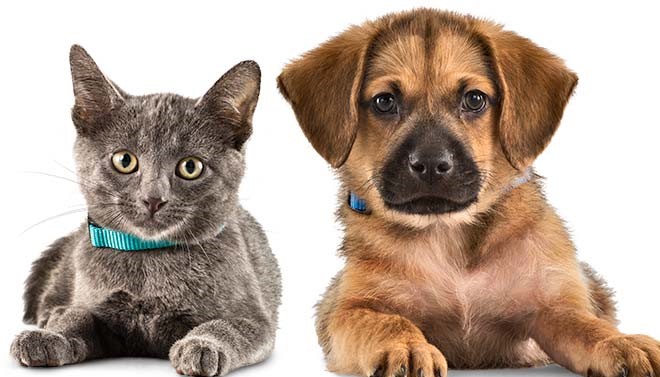
Pets can bring immense joy, companionship, and even health benefits to our lives. However, choosing the right pet is a significant decision that requires careful consideration. The ideal pet for one person may not be suitable for another. This guide aims to help you make an informed choice by examining various factors and providing detailed insights into different types of pets.
Understanding Your Lifestyle
Your lifestyle is one of the most critical factors in determining which pet is right for you. Pets require varying levels of care, attention, and activity. Before deciding, reflect on your daily routine, work schedule, and social commitments.
Activity Level and Pets
If you lead an active lifestyle and enjoy outdoor activities, a dog might be an excellent companion. Dogs, particularly high-energy breeds, thrive on exercise and love activities such as hiking, running, and playing fetch. On the other hand, if you prefer a more relaxed lifestyle, a pet that requires less physical activity, such as a cat or a small mammal, might be more suitable.
Space Considerations
The amount of space you have available is another crucial factor. Larger pets, like dogs, generally need more space to roam and play. If you live in a small apartment, consider smaller pets like birds, fish, or small mammals. Ensure that your living environment can accommodate the specific needs of the pet you’re considering.
Time Commitment
All pets require time and attention, but the amount varies. Dogs, for example, need regular walks, playtime, and training. Cats, while more independent, still require feeding, litter box maintenance, and affection. Consider how much time you can realistically dedicate to a pet without compromising your lifestyle.
Allergies and Sensitivities
Before bringing a pet into your home, consider any allergies or sensitivities among household members. Some people are allergic to pet dander, which can cause discomfort or health issues. Hypoallergenic breeds of dogs and cats may be an option, but it’s essential to spend time with the pet beforehand to ensure compatibility.
Family Dynamics
If you have children, it’s important to choose a pet that is known for being good with kids. Some pets, like dogs and cats, can be great companions for children, teaching them responsibility and empathy. However, it’s crucial to supervise interactions between young children and pets to ensure safety for both.
Choosing the Right Pet
Choosing the right pet involves considering the needs and characteristics of various animals. Here, we explore different types of pets and their suitability for different lifestyles.
Dogs: Man’s Best Friend
Dogs are loyal, loving, and make excellent companions. They come in various breeds, each with its own temperament, activity level, and grooming needs. From the energetic Labrador Retriever to the low-maintenance Bulldog, there’s a dog breed to fit almost any lifestyle. However, dogs require significant time, training, and attention.
Cats: Independent Companions
Cats are known for their independence and can be a good choice for people who want a pet but have a busy lifestyle. They require less attention than dogs but still need regular feeding, grooming, and litter box maintenance. Cats can be affectionate and playful, providing companionship without demanding constant interaction.
Small Mammals: Hamsters, Guinea Pigs, and More
Small mammals, such as hamsters, guinea pigs, and rabbits, are great for those with limited space or who prefer a pet with lower maintenance needs. These pets are generally easy to care for but still require daily feeding, cage cleaning, and social interaction. They can be ideal for children, teaching them responsibility in a manageable way.
Birds: Colorful and Vocal Pets
Birds can bring color and sound into your home. They range from small budgies to larger parrots, each with unique care requirements. Birds need a suitable cage, regular feeding, and social interaction. Some birds, like parrots, are highly intelligent and can form strong bonds with their owners but may require significant attention and stimulation.
Fish: An Aquatic World
Fish are a popular choice for those looking for a pet with minimal interaction. They are relatively low-maintenance, requiring regular feeding and tank cleaning. An aquarium can also be a beautiful addition to your home, providing a calming visual experience. However, it’s important to research the specific needs of the fish species you choose to ensure a healthy environment.
Reptiles: Exotic and Unique
Reptiles, such as snakes, lizards, and turtles, are fascinating pets for those interested in exotic animals. They have specific habitat requirements, including temperature and humidity control. Reptiles can be low-maintenance compared to traditional pets but require a dedicated setup and regular monitoring to ensure their well-being.
Amphibians: Fascinating and Low Maintenance
Amphibians, like frogs and salamanders, are intriguing pets that require minimal interaction. They need a well-maintained habitat with appropriate temperature and humidity levels. Amphibians are generally quiet and can be a unique addition to your household, though they may not be suitable for handling or frequent interaction.
Choosing Pets for Children
When selecting a pet for children, consider the child’s age, maturity, and ability to care for the pet. Small mammals, fish, and some birds can be good starter pets. Dogs and cats can also be great companions but require more involvement from parents. Teaching children about pet care responsibilities from a young age can foster a sense of empathy and responsibility.
Senior-Friendly Pets
For seniors, pets can provide companionship and improve mental and physical health. Low-maintenance pets like cats, small dogs, or birds are often suitable. These pets offer companionship without demanding too much physical exertion. It’s essential to match the pet’s energy level and care needs with the senior’s capabilities.
Adopting vs. Buying Pets
Adopting a pet from a shelter or rescue organization can be a rewarding experience. It provides a home to an animal in need and can often be more affordable than buying from a breeder or pet store. Shelters usually have a variety of pets, including mixed breeds, which can have fewer health issues than purebreds. However, buying from a reputable breeder can also be a good option if you’re looking for a specific breed or need a pet with a known history.
The Importance of Pet Health
Maintaining your pet’s health is crucial for their well-being and longevity. Regular veterinary check-ups, vaccinations, and preventative care are essential. It’s also important to be aware of common health issues specific to the type of pet you choose and to monitor for any signs of illness.
Understanding Pet Nutrition
Proper nutrition is vital for your pet’s health. Different pets have different dietary needs, and it’s important to provide a balanced diet appropriate for your pet’s age, size, and health condition. Consult with a veterinarian to determine the best diet for your pet and ensure they receive the necessary nutrients.
Grooming Needs of Different Pets
Grooming requirements vary significantly among pets. Dogs may need regular baths, haircuts, and nail trims, while cats typically groom themselves but still benefit from brushing. Small mammals, birds, and reptiles also have specific grooming needs. Regular grooming helps maintain your pet’s health and keeps them looking their best.
Training and Socialization
Training and socialization are crucial for pets, particularly dogs. Proper training ensures your pet behaves well and can interact safely with people and other animals. Socialization helps pets become accustomed to different environments, reducing fear and anxiety. Investing time in training and socialization can lead to a happier, more well-adjusted pet.
The Financial Aspect of Pet Ownership
Owning a pet involves financial responsibilities. Consider the costs of food, grooming, veterinary care, and pet supplies. Some pets, such as dogs and cats, may have higher expenses due to their ongoing needs. Budgeting for these costs ensures you can provide the best care for your pet without financial strain.
Traveling with Pets
If you travel frequently, consider how this will impact your pet. Some pets can travel with you, while others may need a pet sitter or boarding facility. Ensure that you make appropriate arrangements for your pet’s care during your absence and consider how travel may affect their well-being.
Ensuring a Safe Home for Your Pet
Creating a safe environment for your pet is essential. Pet-proof your home by removing hazards, such as toxic plants or small objects that could be ingested. Ensure that your pet has a designated space with all the necessary supplies, including food, water, and bedding. A safe home environment contributes to your pet’s overall health and happiness.
Choosing the right pet is a significant decision that requires careful consideration of various factors, including lifestyle, space, time commitment, and family dynamics. By understanding the needs and characteristics of different types of pets, you can make an informed choice that will lead to a fulfilling and joyful relationship with your new companion.
FAQs
What should I consider when choosing a pet?
Consider your lifestyle, space, time commitment, allergies, and family dynamics. Different pets have varying needs and characteristics, so it’s essential to choose one that fits well with your lifestyle and home environment.
Are dogs or cats better for busy people?
Cats are generally more independent and require less time than dogs, making them better suited for busy people. However, some dog breeds are also low-maintenance and may be a good fit for individuals with hectic schedules.
What are the benefits of adopting a pet from a shelter?
Adopting a pet from a shelter provides a home to an animal in need and can be more affordable than buying from a breeder. Shelter pets often come with health checks and vaccinations, and adopting can be a rewarding experience.
How do I choose a pet for my child?
Consider the child’s age, maturity, and ability to care for the pet. Small mammals, fish, and some birds are good starter pets, while dogs and cats require more involvement. Ensure the pet is safe and suitable for a child’s interaction.
What are the costs associated with pet ownership?
Pet ownership involves costs such as food, grooming, veterinary care, and pet supplies. Some pets have higher expenses due to their ongoing needs. Budgeting for these costs ensures you can provide the best care for your pet.
How can I ensure my home is safe for my pet?
Pet-proof your home by removing hazards like toxic plants and small objects that could be ingested. Create a designated space with necessary supplies, including food, water, and bedding, to ensure your pet’s safety and comfort.
